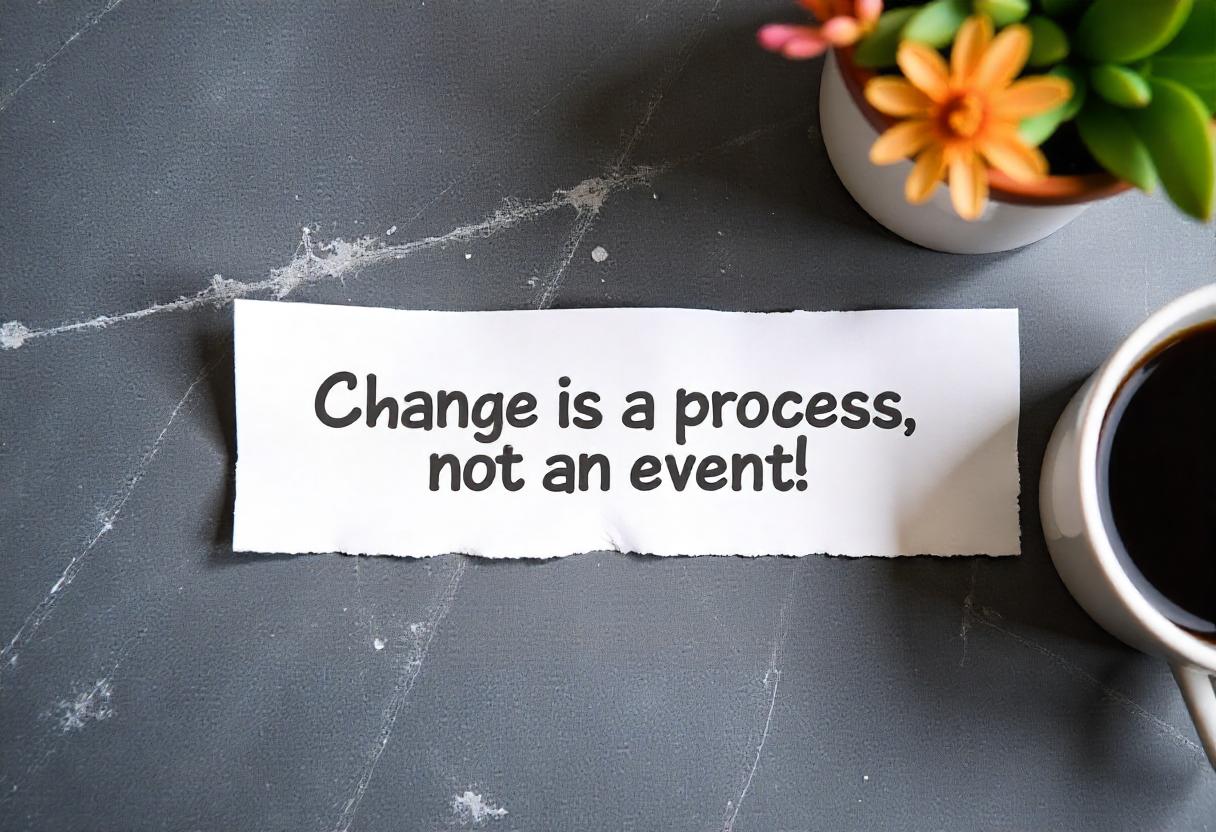You’ve probably noticed how making positive changes in your life often leads to unexpected hurdles and temporary setbacks. It’s like cleaning out a cluttered cupboard – the mess gets bigger before everything finds its proper place. This paradox of progress can feel discouraging, and you might wonder if you’re moving in the right direction at all. But there’s a fascinating reason why this pattern occurs, and understanding it can transform how you approach personal growth.
Understanding the Natural Cycle of Change
When you embark on any significant change, understanding its natural cycle can help you navigate the challenging phases ahead.
Just like seasons in nature, the process of making changes follows predictable patterns that often include temporary setbacks and increased difficulties before improvement occurs.
As you make changes to improve your mental health or life circumstances, you’ll likely encounter resistance, heightened stress, and moments of doubt.
These challenging phases aren’t signs of failure – they’re natural parts of the transformation process. Your old patterns and beliefs may initially fight against new ways of thinking and behaving, causing temporary discomfort.
The Hidden Challenges of Breaking Old Patterns
Although breaking old patterns may seem straightforward, the process often reveals unexpected layers of complexity that can catch you off guard.
As you become more self-aware, you’ll likely encounter feelings of shame when old beliefs and behaviours resurface. This heightened awareness can make the journey feel more challenging than expected.
You might find yourself tempted to relapse into familiar coping mechanisms during stressful moments, even when you know they’re unhelpful.
Remember that change isn’t linear, and temporary setbacks are a normal part of transformation. Instead of expecting immediate results, allow yourself time to heal and adapt. Remember, change is a process, not an event.
Navigating Through Increased Emotional Stress
Despite our best efforts to maintain emotional equilibrium, periods of significant change often trigger intense waves of stress that can feel overwhelming.
You might notice old anxieties resurfacing and familiar coping mechanisms failing as you confront deeper emotions that were previously pushed aside. This heightened emotional stress can make you feel like you’re taking steps backward instead of forward.
Remember that experiencing difficult feelings is a natural part of growth and transformation. While it may seem counterintuitive, this temporary increase in distress often signals that you’re processing important emotions rather than avoiding them.
Adapting to Unfamiliar Territory
Moving beyond emotional stress and stepping into unfamiliar territory is the next challenge. When you venture into new situations, you’ll likely experience heightened stress as your brain works overtime to process unfamiliar information. Your natural adaptation mechanisms kick in, but they often trigger old patterns that resist change.
| Phase | Challenge | Solution |
|---|---|---|
| Initial Entry | Overwhelming uncertainty | Take small steps |
| Learning Curve | Increased cognitive load | Break tasks down |
| Resistance | Old habits resurface | Practice patience |
| Adjustment | Performance dips | Accept temporary setbacks |
| Integration | New patterns emerge | Celebrate progress |
Remember that feeling uncomfortable is a natural part of growth. While your performance might temporarily decline as you navigate this new terrain, your brain’s remarkable capacity for adaptation will eventually help you find solid ground in this unfamiliar space.
Building Resilience During Transitional Phases
Building resilience becomes your essential anchor for navigating uncertainty when change disrupts your familiar routines. You’ll likely face intensified emotions and temporary setbacks as you adapt to new circumstances, but these challenges are normal stepping stones toward growth.
Developing self-awareness helps you recognise when you’re falling back into old patterns or struggling with new demands. Rather than fighting against discomfort, embrace it as a natural part of your transformation process. You’ll find strength in acknowledging your vulnerabilities and practising self-compassion when setbacks occur. Remember that you don’t have to build resilience alone.
Reach out to others who understand your journey, share your experiences, and lean on supportive relationships. You’ll develop the emotional muscles needed to thrive amid transition through commitment and accountability.
Frequently Asked Questions
Why Does Everything Get Worse Before It Gets Better?
You’ll face increased stress and resistance while adapting to new changes. Your old habits resurface strongly, and you’ll experience temporary setbacks. But these challenges actually prepare you for lasting positive transformation.
What Is It Called When Things Get Worse Before They Get Better?
You’ll often hear this called “the dip” or “the valley of despair.” It’s also known as a “healing crisis” or “regression before progression,” describing that temporary downturn before positive change emerges.
Why Does It Get Worse Before Better?
When you’re adapting to change, you’ll face increased stress, cognitive overload, and temporary setbacks. You’ll need time to adjust to new processes and overcome resistance, causing initial difficulties before improvement occurs.
Why Do We Feel Worse Before Getting Better?
You’ll feel worse initially as your mind and body process changes, let go of old patterns, and build new coping skills. It’s like growing pains – uncomfortable but necessary for healing and growth.
Conclusion
Remember that temporary setbacks are part of growth when you’re going through tough times. You’ll face increased stress and resistance as you break old patterns, but don’t let this discourage you. These challenges strengthen your resilience and prepare you for positive change. Trust that the discomfort you’re experiencing isn’t a sign of failure—it’s evidence that you’re evolving into something better.











